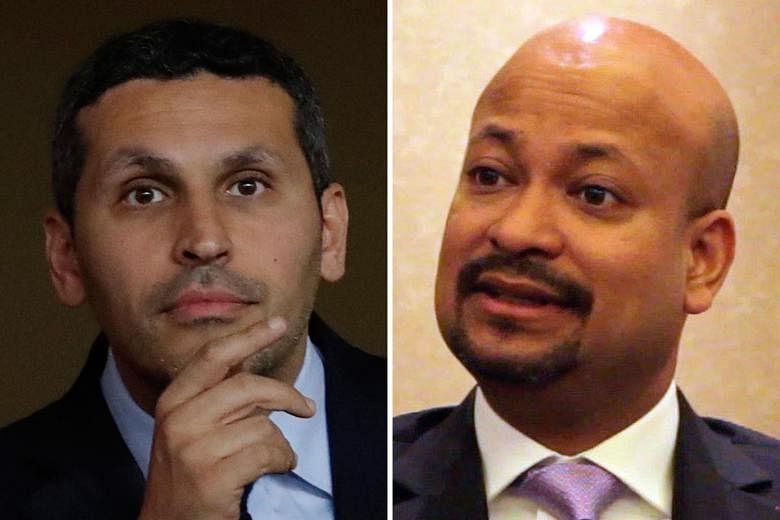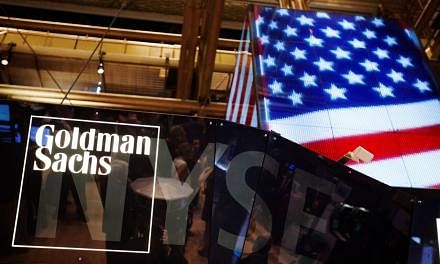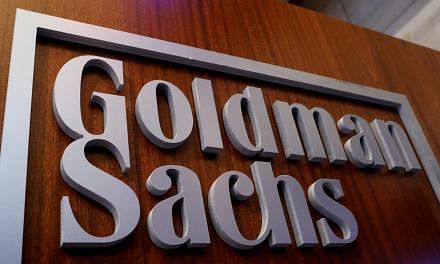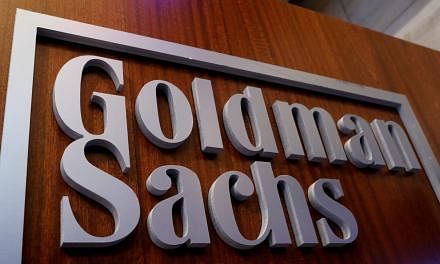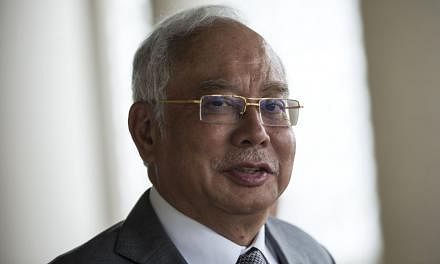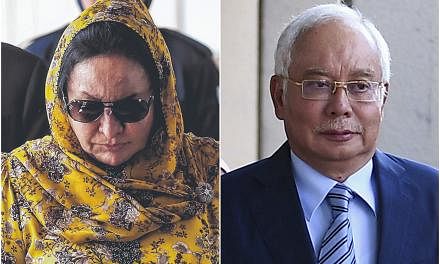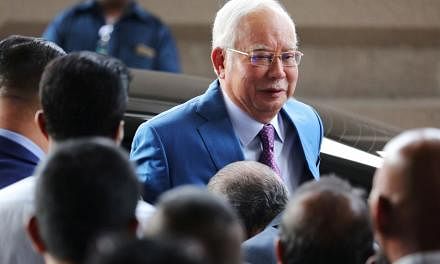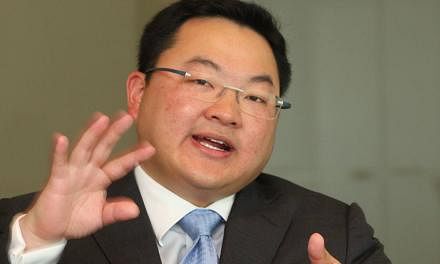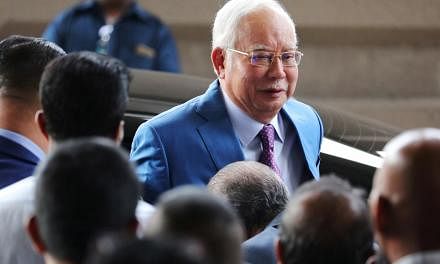Malaysia and Abu Dhabi have reached a settlement on a dispute involving billions of dollars in debt obligations of scandal-scarred 1Malaysia Development Berhad (1MDB) that is at the centre of an international money-laundering probe.
Senior financial executives familiar with ongoing negotiations told The Straits Times that state-owned investment funds from both countries are expected to sign a settlement agreement as early as today.
A central piece of the proposed settlement calls for Malaysia to repay Abu Dhabi US$1.2 billion (S$1.7 billion) before the end of this year.
The amount represents a loan and accumulated interest charges on a bailout financial package 1MDB received from Abu Dhabi's International Petroleum Investment Company (IPIC) in July 2015.
The bulk of the payment on the outstanding loan amount will come from the sale of so-called "fund units" from Brazen Sky, a financial unit owned by 1MDB, to an undisclosed buyer, said the executives.
-
Resolving a bitter row
-
Leslie Lopez looks at the history as well as the key players in the settlement of the bitter dispute between Abu Dhabi and Malaysia involving 1Malaysia Development Berhad (1MDB).
HISTORY
May & October 2012: IPIC guarantees two bonds worth US$1.75 billion (S$2.4 billion) each for 1MDB which helped the Malaysian state investment firm to raise funds for the acquisition of power-generation assets. As part of the bond guarantee agreement, 1MDB makes collateral payments to IPIC.
December 2015: Relations between IPIC/Aabar and 1MDB become strained over missing monies, and Malaysia fails to settle payment over a US$1.2 billion loan from Abu Dhabi.
April 2016: Dispute between Abu Dhabi and Malaysia over the missing billions becomes public. Malaysia insists it made payments amounting to US$3.5 billion to IPIC units. IPIC maintains it did not receive the bulk of those funds. Bilateral ties are strained and Abu Dhabi declares Malaysia in default.
May 2016: The governments of Abu Dhabi and Malaysia agree to resolve the dispute in private arbitration.
July 2016: US Department of Justice files civil cases to seize more than US$1 billion in assets that it says were acquired though funds misappropriated from 1MDB.
August 2016: Abu Dhabi and Malaysia quietly resume back-channel talks to resolve the dispute over the missing monies. The behind-the-scenes negotiations remain rocky and on several occasions the talks nearly break down.
Mid-April 2017: Both sides agree to a settlement plan.
-
KEY PLAYERS
Abu Dhabi
• Mr Khaldoon Al-Mubarak, managing director of Abu Dhabi's giant sovereign wealth fund, Mubadala Development Company, and chairman of the emirate's Executive Affairs Authority, a special government agency that provides strategic advice to its rulers. He provided the high-level approvals needed to push the tough negotiations along.
• Mr Samer Halwa, Mubadala's chief legal counsel, who has been described as the "quarterback" directing the Abu Dhabi case.
Malaysia
• Datuk Amhari Efendi Nasaruddin, head of the economics division in the Prime Minister's Office and chief troubleshooter for PM Najib Razak. He served as chief liaison, providing all the high-level approvals and at the same time directing Malaysia's case.
• Mr Arul Kanda, 1MDB group executive director.
• Mr Azmi Tahir, 1MDB chief financial officer.
The settlement agreement also calls for both parties to enter into negotiations to resolve another dispute involving roughly US$3.5 billion in the form of cash advances and payments from 1MDB to IPIC that are now in dispute. Negotiations will commence early next year and must be concluded before December 2020, during which time both parties will stand down from pursuing any legal action, the executives said.
The cash advances were part of Malaysia's obligations under a US$3.5 billion bond issue that Abu Dhabi helped Kuala Lumpur raise in 2012. Under the proposed settlement, the Malaysian government will honour all obligations to its international bond holders.
Bankers and legal executives familiar with the situation believe the deal could significantly dilute the international legal challenges confronting Prime Minister Najib Razak's administration over the fallout from the 1MDB saga.
Here is why: The disputed monies in the Malaysia-Abu Dhabi row are central to legal suits brought by the United States Department of Justice over the alleged misappropriation of funds from 1MDB.
The Department of Justice claims that the funds siphoned from 1MDB went to fund purchases of real estate and other assets by associates of PM Najib.
The settlement agreement between Malaysia and Abu Dhabi would achieve what is known in legal parlance as "no predicate offence", the financial executives said. A predicate offence is a crime that is a component of a more serious crime. It is frequently applied in the US to actions involving the provision of funds for money laundering and the financing of terrorism.
Proponents of the settlement argue that a successful completion of the deal would weaken the impact of any legal action taken by foreign governments over alleged money laundering at 1MDB because of the lack of evidence.
Malaysia's Second Finance Minister Johari Abdul Ghani and 1MDB's group executive director Arul Kandasamy, who are part of the high- powered team leading the negotiations to resolve the dispute, did not respond to requests for comment. One senior executive noted: "The main aim was to avoid a messy arbitration fight and this (deal) is a product of both parties working through back channels to reach a settlement."
The executive disclosed that other key players in the negotiations included Datuk Amhari Efendi Nazaruddin, a senior adviser to Datuk Seri Najib, and senior officials from Abu Dhabi's Executive Affairs Authority, a special government agency that provides strategic advice to the Gulf state's rulers.
The dispute centred on fund transfers of roughly US$3.54 billion that 1MDB said it made to units of IPIC as part of its obligations under a May 2012 bond agreement. But IPIC declared that it never received those monies, triggering a row over interest payments on the bond issue which had helped 1MDB raise funds for the acquisition of power- generation assets.
IPIC declared 1MDB in default later after the Malaysian state investment fund refused to honour an interest instalment of US$50.3 million, a move that exposed the Malaysian government to billions more in claims.
As the dispute moved into private arbitration, the 1MDB scandal grabbed global attention, with the US Justice Department filing lawsuits in Los Angeles seeking to seize dozens of properties and luxury assets that it claimed were purchased with funds amounting to over US$3.5 billion. US officials said the funds were illegally siphoned from the Malaysian state fund.
The Justice Department probe, which is ongoing, is moving in tandem with investigations in several other jurisdictions, including Singapore, Switzerland and Hong Kong.

